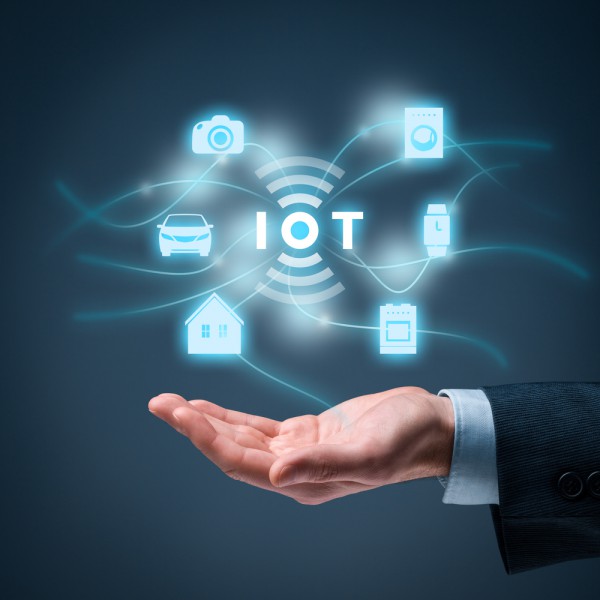
Consumers less willing to share information following privacy scandals
In the wake of privacy scandals like that involving Cambridge Analytica consumers are changing their online behavior and sharing less information.
This is among the findings of new research from privacy app FigLeaf which shows 82 percent of online users in the US and 75 percent in the UK are choosing to change the way they behave online. Of these respondents, 74 percent say they are sharing less information.

Is technology harming our ability to write?
The pen may be mightier than the sword, but it seems that because of technology our writing skills may be about to go the same way as our swashbuckling.
Stationery supplier www.euroffice.co.uk has polled over 2,400 Brits to find out how people feel about their handwriting, how frequently they write and if technology is killing the hand written word.

Staff break IT rules in order to do their jobs with management the worst offenders
A new survey of more than 3,000 people around the world finds 46 percent of employees access personal documents on their work device without the IT department's permission.
The study from Snow Software also shows 41 percent of global employees are going behind IT's back to get professional software and applications.

The rapid rise of the social media influencer
One of the key trends of the last few years has been the growth of influencer marketing via sponsored content on social media.
New research from marketing platform Socialbakers into Instagram marketing shows that in North America, influencer-sponsored posts have grown by over 150 percent from 2018 to 2019.

We're getting better at backing up our data -- but we're also losing more
A new study released by Acronis ahead of Sunday's World Backup Day shows 92.7 percent of consumers are backing up their computers -- an increase of more than 24.1 percent from last year and the largest ever year-on-year increase.
This could be because the report also shows that 65.1 percent of those surveyed say either they or a family member has lost data as a result of an accidental deletion, hardware failure or software problem -- a jump of 29.4 percentage points from last year.

Branded calling solution seeks to rebuild trust in mobile calls
A few months ago we reported on a study that found half of calls to mobiles would soon be scams without more effective protection measures being introduced.
First Orion the company behind that survey is addressing the problem with the launch of a new platform that gives consumers confidence in answering calls, but also helps businesses get their legitimate communications through.

Have you plugged it in? The silliest IT support calls of 2018
Just as the biggest problem with a car is often the nut holding the wheel, many IT support issues are down to the user rather than the equipment.
UK-based support company Probrand has compiled a list of some of the oddest support calls it has received over the past year.

Video sensors, medical devices and security worries -- IoT predictions for 2019
More and more devices in our homes and workplaces are gaining smart capabilities as the Internet of Things starts to move from niche to mainstream.
But greater adoption also means an expanded threat surface. So what can we expect to see from the IoT in 2019? We’ve rounded up the opinions of some industry experts.

Addressing the skills gap, cyber wars and a new wave of immersive intelligence -- AI predictions for 2019
Artificial intelligence has been 'the future' for quite a long time, but it seems that the potential of the technology is at last starting to have an impact on the real world.
What do industry experts think will be the things we'll see from AI in 2019? We've put together some of their opinions below.

Shutterstock reveals the most searched celebs and events of 2018
The internet is a serious and valuable tool for research and commerce, but we all know it's mostly about cute kittens and celebrities.
Photo service Shutterstock has been analyzing the search data from its site to reveal most searched for names around the world and has produced an infographic of the result.

Artificial intelligence -- force for good or force for evil?
There are a lot of benefits to be gained from artificial intelligence, but its use also raises concerns over the impact it is likely to have on jobs, privacy and more.
Enterprise AI specialist noodle.ai has produced an infographic looking at the positive and negative impacts of the technology.

Almost 80 percent of people dislike content recommendation widgets
We've all seen them on news websites, at the bottom of pages or lurking in side bars, those 'Promoted stories' with cheesy headlines like, 'What she looks like now will amaze you!'
Well, it perhaps won't surprise you to learn that most people don't like them. A study by interactive content specialist Arkadium shows that 79 percent of those surveyed disapprove of sites using content recommendation widgets.

Staff feel pressure to over achieve when working from home
Working from home has long had a stereotype image of people sitting around in their pajamas drinking coffee while logged into the office computer but not doing very much actual work.
But new research from remote access tool LogMeIn, shows 46 percent of UK workers feel the need to show that they are actually being productive when working from home.

Half of adults look for online recommendations rather than ask their partners
More than half of adults worldwide are more likely to consult digital resources than their significant other (SO) for recommendations for products and services according to a new report by cloud database company DataStax.
In the US, 64 percent of adults choose digital resources over their SO, in the UK it's 61 percent, and Germany, 52 percent. The French, however, are still inclined to the offline approach with only 45 percent of adults choosing digital resources over their SO.

Six out of 10 Brits think technology will make jobs obsolete
Technology is destroying jobs, 61 percent of British respondents to a new survey believe, despite evidence to the contrary.
The study by polling organization YouGov for recruitment site LynxPro finds only 14 percent believe technology is having no impact on the jobs market, while just 11 percent think it's creating jobs.
